-
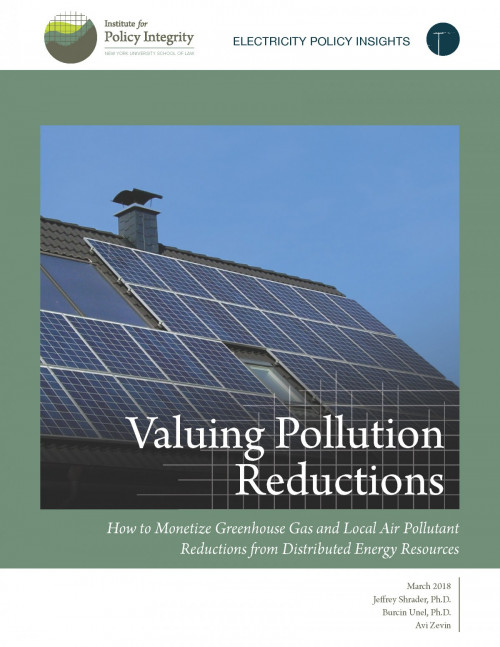
Valuing Pollution Reductions
How to Monetize Greenhouse Gas and Local Air Pollutant Reductions from Distributed Energy Resources
Distributed energy resources (DERs)—grid-connected, small-scale electric generators such as rooftop solar installations, micro-turbines, combined heat and power systems, customer backup generators, and distributed energy storage systems—are a growing part of the U.S. electric system. They can help avoid the high levels of greenhouse gases and local air pollution produced by traditional energy sources. As their use grows, state electric utility regulators are seeking to compensate DERs accurately for the benefits they offer, including reductions in pollution that contributes to climate change and harms human health. This report shows how regulators can calculate the types and amount of pollution avoided, and then monetize these benefits for use in policy.
-
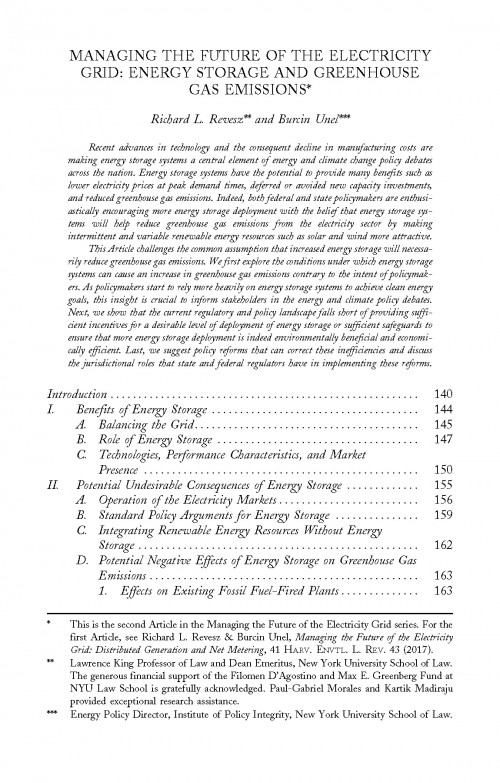
Managing the Future of the Electricity Grid: Energy Storage and Greenhouse Gas Emissions
Recent advances in technology and the consequent decline in manufacturing costs are making energy storage systems a central element of energy and climate change policy debates across the nation. Energy storage systems have the potential to provide many benefits such as lower electricity prices at peak demand times, deferred or avoided new capacity investments, and reduced greenhouse gas emissions. Indeed, both federal and state policymakers are enthusiastically encouraging more energy storage deployment with the belief that energy storage systems will help reduce greenhouse gas emissions from the electricity sector by making intermittent and variable renewable energy resources such as solar and wind more attractive. This article, published in the Harvard Environmental Law Review, challenges this common assumption that increased energy storage will necessarily reduce greenhouse gas emissions.
The article was selected by Environmental Law Reporter as one of the five best environmental law articles published during the 2018-2019 academic year. An adapted version, The Future of Energy Storage: Adopting Policies for a Cleaner Grid, was included in the August 2019 Environmental Law and Policy Annual Review issue of Environmental Law Reporter’s News & Analysis.
-
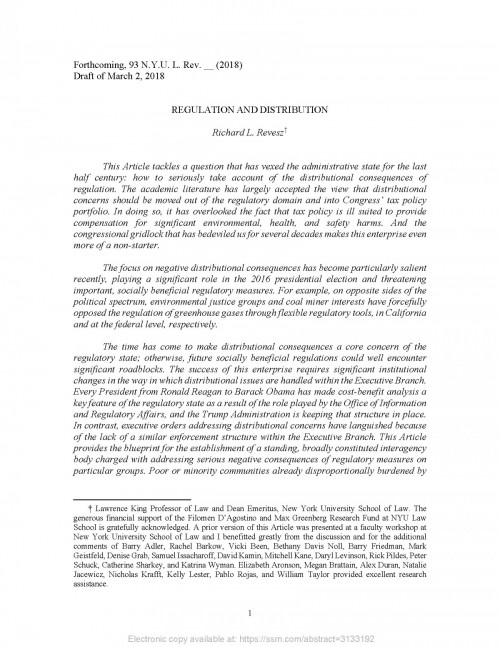
Regulation and Distribution
Most regulations seek to improve social welfare, but maximizing overall welfare may not help or protect all groups evenly. Many economists suggest handling unequal regulatory effects through the tax system. But some harms—like the disproportionately high environmental pollution felt by poor and minority communities and loss of the employment base in rural communities due to shifts in the economy—cannot be addressed by monetary compensation alone. A new article by Richard Revesz, published in the NYU Law Review, offers a blueprint for establishing a standing, broadly constituted interagency body charged with addressing serious negative consequences of regulatory measures on particular groups.
-
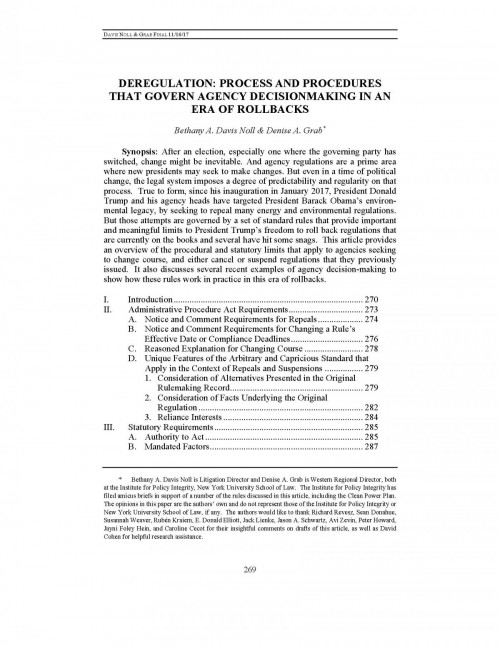
Deregulation: Process and Procedures That Govern Agency Decisionmaking in an Era of Rollbacks
Though change might be inevitable when a new governing party comes to power, the United States’ legal system imposes a degree of predictability and regularity on that change. Since his inauguration in January 2017, President Donald Trump and his agency heads have been working to repeal many energy and environmental regulations issued under prior administrations. But these attempts are governed by a set of standard rules that limit President Trump’s freedom to roll back regulations. This article, published in the Energy Law Journal, provides an overview of the procedural and statutory limits that apply to agencies seeking to change course and cancel or suspend regulations that they previously issued. It also discusses recent examples of agency decision-making to show how these limits work in practice.
-
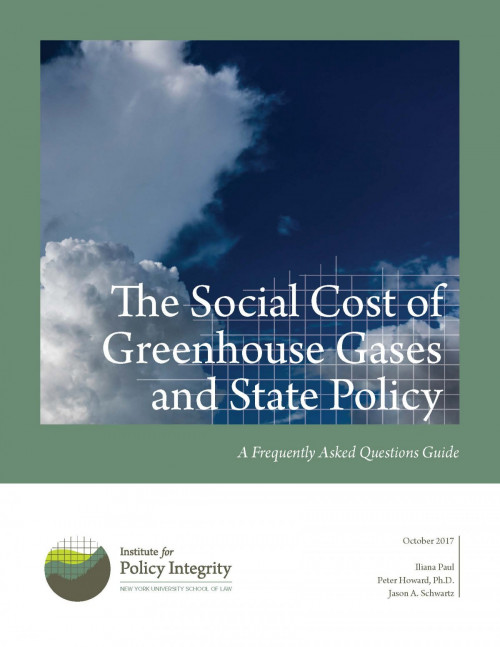
The Social Cost of Greenhouse Gases and State Policy
A Frequently Asked Questions Guide
States can benefit from using the social cost of greenhouse gases to aid in making rational policy decisions in a transparent manner. Many states are already using these metrics in their decisionmaking. This report provides information on several issues related to the social cost of greenhouse gases, including discount rates, time horizons, and the global nature of the estimate.
Viewing all publications in Climate and Energy Policy
